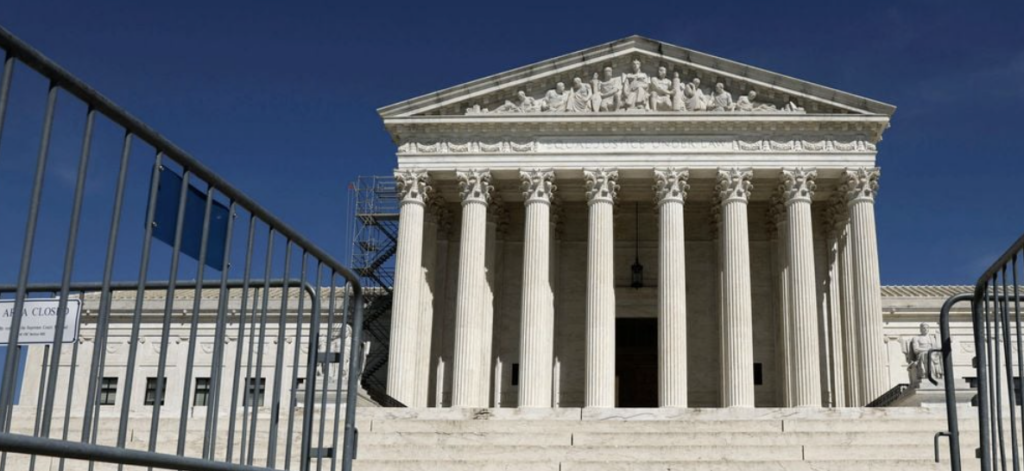The Supreme Court on Thursday ruled 8-1 against union leaders who sought to avoid liability for intentionally damaging property during a strike.
SCOTUS rejected an argument by Teamsters unions that they should receive immunity from a lawsuit brought by Washington concrete company Glacier Northwest under the National Labor Relations Act. Justice Amy Coney Barrett gave the court’s opinion and Justice Ketanji Brown Jackson was the sole dissenter.
This decision is a win for those who support the right to work, and argue that workers should not be forced to pay union dues or other coercive measures. The National Right to Work Foundation submitted an amicus brief to support Glacier Northwest.
The Supreme Court ruled correctly that union officials shouldn’t be immune from state lawsuits for deliberate property damage committed during union strikes. Mark Mix, National Right to Work Foundation president, said that the issue in Glacier Northwest is only the tip-of-the-iceberg in terms of union bosses special legal privileges.
Glacier has sued the Teamsters over an estimated $100,000 worth of property damage caused by union officials during a 2017 strike.
The SCOTUS decision explains that during the strike the union requested a stop to work while the company was loading concrete onto trucks and preparing them for delivery. The union told the workers not to follow the orders of Glacier, and 16 drivers returned with trucks that were fully loaded. Glacier was in an emergency situation because they could not leave the hardening concrete inside the trucks, nor could they dump it anywhere. They therefore had to have non-striking workers build special bunkers in order to unload the concrete.
Emergency directives prevented further damage to trucks and concrete already mixed. Washington’s Supreme Court ruled for the workers due to protections provided by the NLRA. This decision was overturned by an appeals court.
SCOTUS ruled in 2018 against organized labor’s interests in the Janus v. AFSCME Case, which prevented public sector unions from imposing compulsory union dues on non-union employees.


